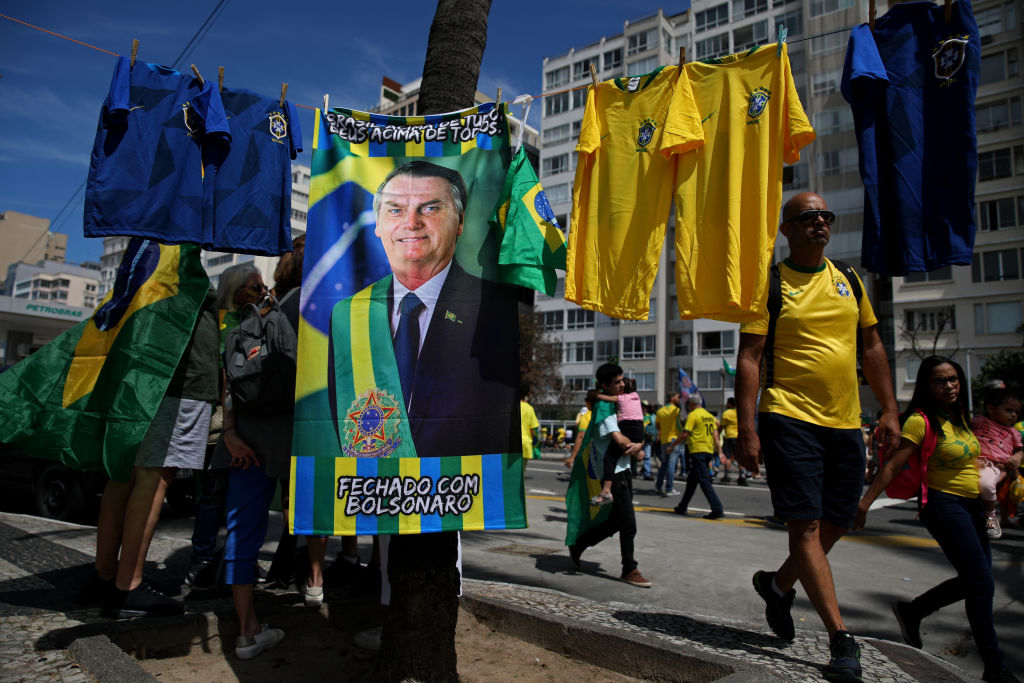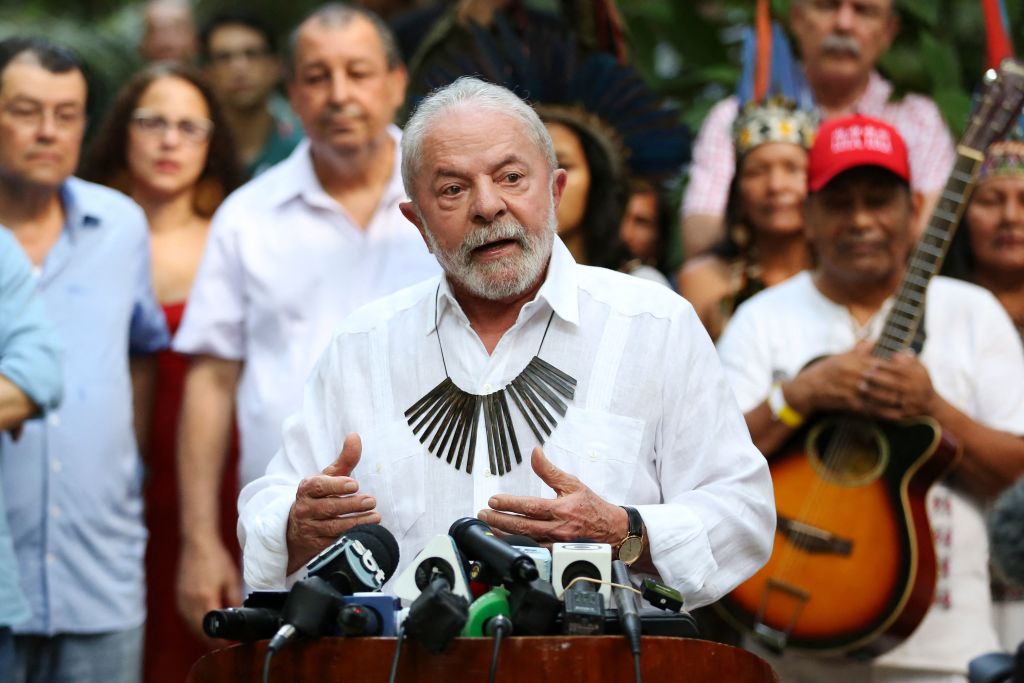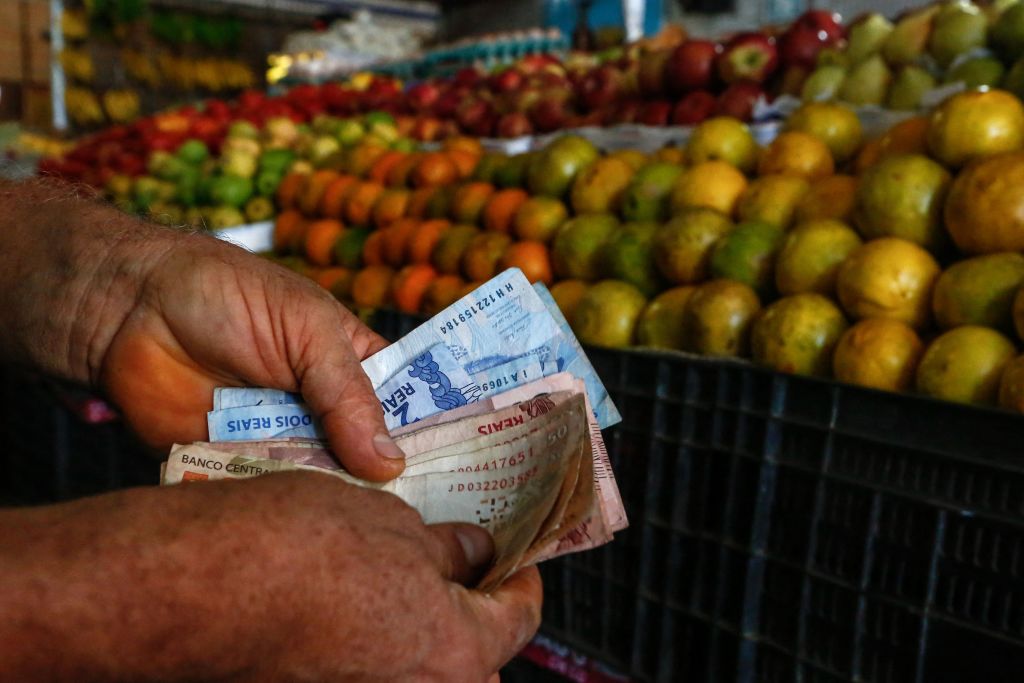
Brazil heads to the polls on Oct. 2 for crucial general elections in Latin America’s largest economy and most populous country that will determine the next President, Vice President, and National Congress. The key question on everyone’s minds is whether the far-right President Jair Bolsonaro will get another term, or whether the left-wing former President Luiz Inácio Lula da Silva will return to office as part of a resurgent pink tide in the region that has recently seen leftists take power in Colombia, Argentina, Mexico, and elsewhere.
The latest polls suggest that Lula will comfortably defeat Bolsonaro—possibly even in just one round of voting. (In Brazil, if no presidential candidate gets more than 50% of the total vote, it triggers a head-to-head competition between the two frontrunners, almost certainly this year Bolsonaro and Lula.)
The choice between the two men could not be more stark.
Over the last four years, Bolsonaro has questioned the role of the Supreme Court and repeatedly suggested without evidence that the electoral system is rigged. He has compared COVID-19 to “a little flu,” and approved destructive environmental policies that have devastated the Amazon rainforest.
Lula ruled from 2003 to 2010 after winning two four-year terms in office and helped lift millions out of poverty, making him one of the country’s most popular leaders. “Lula is running on nostalgia to win his old job back,” says Gustavo Ribeiro, journalist and founder of English-language politics site The Brazilian Report.
However, Lula is also controversial but in different ways. In September 2016, he was slapped with corruption charges that originated from a money laundering investigation known as Operation Car Wash, which set out to root out corruption among high-ranking Latin American political and business leaders. In July 2017, he was found guilty and a court ruled he was not allowed to run for reelection in 2018. But in March of last year, Brazil’s Supreme Court overturned the conviction, citing some technicalities and saying Lula’s right to a fair trial had been compromised by a biased judge—allowing him to run for President this time around.

Lula has held up the Supreme Court’s verdict as proof of his innocence: he argues that the corruption charges were cooked up by right-wing forces to keep him out. On the campaign trail, he has compared himself to other high-profile political prisoners like Nelson Mandela and Martin Luther King Jr. But recent surveys have found that public opinion is split.
Read More: Brazil’s Most Popular President Returns From Political Exile With a Promise to Save the Nation
Brazil’s democratic backslide
On Sept. 27, Bolsonaro’s conservative Liberal party claimed without evidence that government employees could manipulate election results; the country’s electoral body dismissed the accusations as “false and dishonest.” This came after Bolsonaro made a rare admission earlier this month on a podcast that he would step down if defeated. “If that is God’s will I will continue, but if it is not, I will pass the presidential sash and retire.”
Fueling some of these fears is Bolsonaro’s call last September for tens of thousands of his supporters to protest against the court after his dispute with the judiciary over changes to the voting system that involved the President’s attempts to push for paper voting receipts. Brazilian and international media compared the incident to the Jan. 6 insurrection at the U.S. Capitol. While some may point to Bolsonaro as taking a page out of U.S. President Donald Trump’s playbook, it may well be the other way around, according to Ribeiro. “Bolsonaro attacked the system way before Trump became President… He has threatened time and again not to recognize the results if he doesn’t believe they are fair and square.”
In recent weeks, Bolsonaro has been criticized for using the 200th anniversary of Brazil’s independence from Portugal and his speech at the U.N. to try and drum up support for his campaign.
Civil rights advocates fear a second Bolsonaro term could lead to a democratic backsliding, or worse.
Bolsonaro’s record in office
There are concerns that the pace of the Amazon’s deforestation could reach a tipping point where it turns into a dry savanna under a second Bolsonaro term. That would in turn accelerate global climate change; the Amazon has long functioned as a sink for draining carbon dioxide from the atmosphere and absorbs about 2 billion tons of CO2 per year—or 5% of global emissions. Data from Brazil’s National Institute for Space Research showed that more than 3,980 square kilometers were deforested in the first six months of this year, the highest amount since 2016.
Under Bolsonaro, laws around deforestation have been loosened and environmental agencies have seen staffing and budget cuts. “There has been very little monitoring or fining or attempt to regulate deforestation,” says Amy Erica Smith, an associate professor of political science and expert on Brazilian politics at Iowa State University. What’s more, Ribeiro says: “Bolsonaro incentivizes the use of Indigenous lands, environmental protection areas for mining, for cattle ranching.”
Bolsonaro has also been criticized for his management of the COVID-19 pandemic, and spreading misinformation about the virus and vaccines. Brazil has over 685,000 recorded COVID deaths, which is one of the highest death tolls globally.
What do voters care about?
More than one third of Brazilian families are dealing with food insecurity, according to a study published in May by the Getulio Vargas Foundation (FGV), a Brazilian academic institution.

“People are really struggling,” Ribeiro says. “That’s why Bolsonaro has broken the bank to increase social spending.”
Bolsonaro has cut fuel taxes to reduce prices after they shot up in part because of Russia’s war in Ukraine. He increased aid payments to the countries’ poorest through a program called Auxilio Brasil, or Brazil Aid; in August, he started giving out $120 monthly cash payments to 20 million families. Inflation has not been as big a problem in Brazil as in the U.S. and Europe either, because of lower energy prices. But wages are still shrinking and unemployment is still high, though decreasing.
Bolsonaro is also particularly popular among evangelical Christians, who make up almost one-third of the country’s population, according to the Datafolha polling firm. (In 2018, about 70% of these voters backed Bolsonaro.) “There are enough evangelicals that they could really matter,” Smith says.
“Bolsonaro is the first candidate that really embraced them,” Traumann says. He gave them key ministerial positions as well as appointed a Supreme Court judge who was evangelical. Lula, on the other hand, faced pushback from many evangelicals following remarks he made earlier this year that abortion should be viewed as a public health issue, instead of a religious one. Bolsonaro has repeatedly stressed his commitment to ensure most abortions remain illegal in Brazil.
That’s not to say all evangelicals vote in a bloc. Some female voters in particular may be put off by what experts say is Bolsonaro’s misogyny. Smith doubts evangelicals will come out as strongly as they did for Bolsonaro in 2018 because “they will be evaluating him not only on culture war issues like abortion and LGBTQ rights but also his performance on the economy and pandemic,” she says.
But if polls are correct, and Lula prevails either on Oct. 2 or Oct. 30, Brazilians—and much of the world—will be tuning in to see what comes next.
Update, Sept. 29
This post has been updated as the campaign unfolds. The headline has also been changed.
More Must-Reads from TIME
- Cybersecurity Experts Are Sounding the Alarm on DOGE
- Meet the 2025 Women of the Year
- The Harsh Truth About Disability Inclusion
- Why Do More Young Adults Have Cancer?
- Colman Domingo Leads With Radical Love
- How to Get Better at Doing Things Alone
- Michelle Zauner Stares Down the Darkness
Write to Sanya Mansoor at sanya.mansoor@time.com